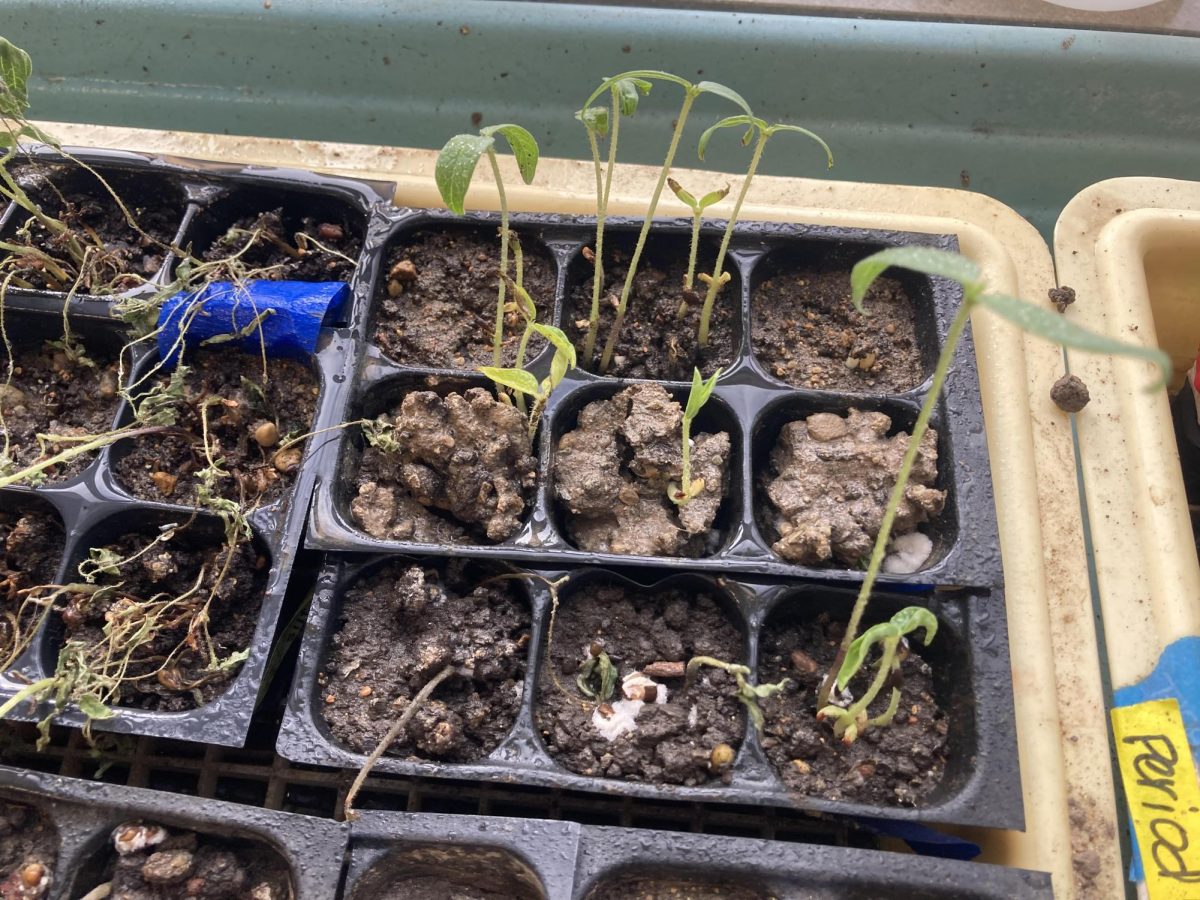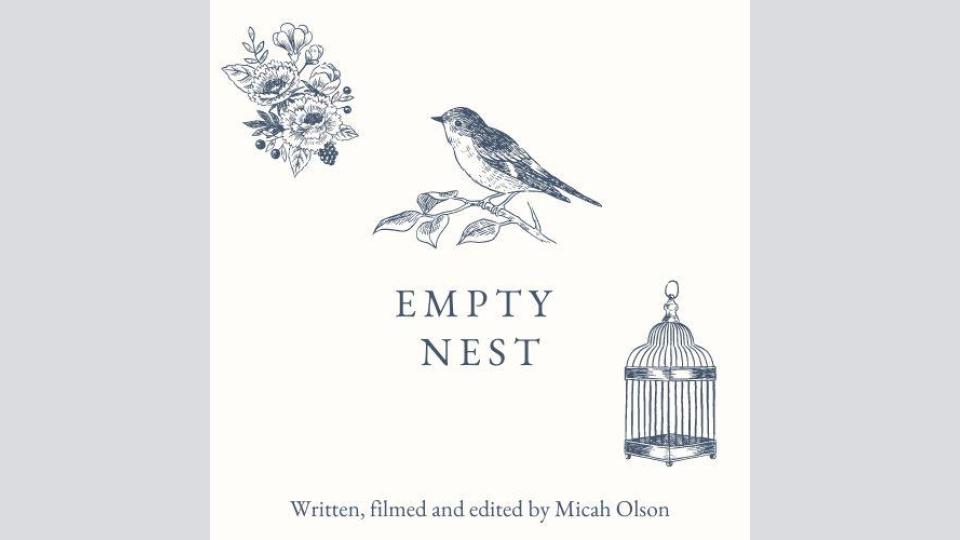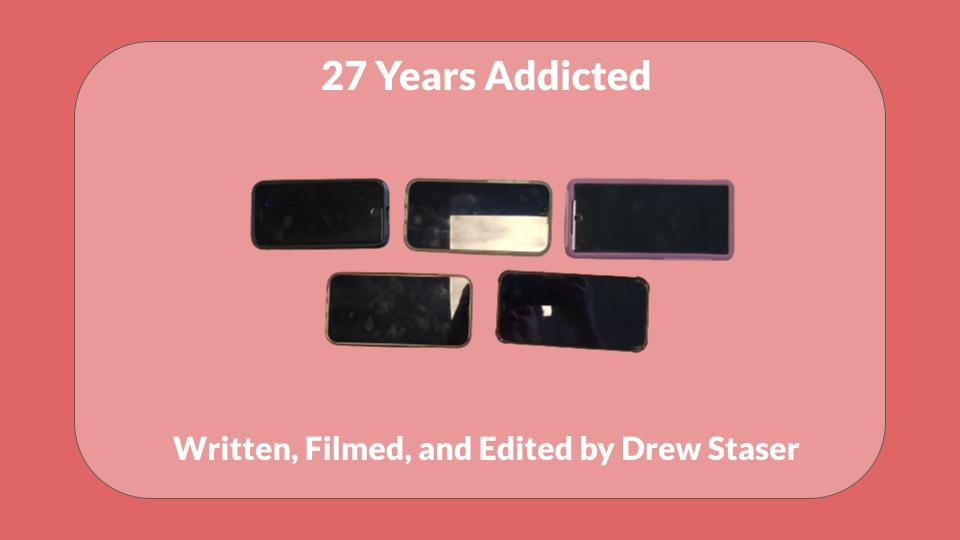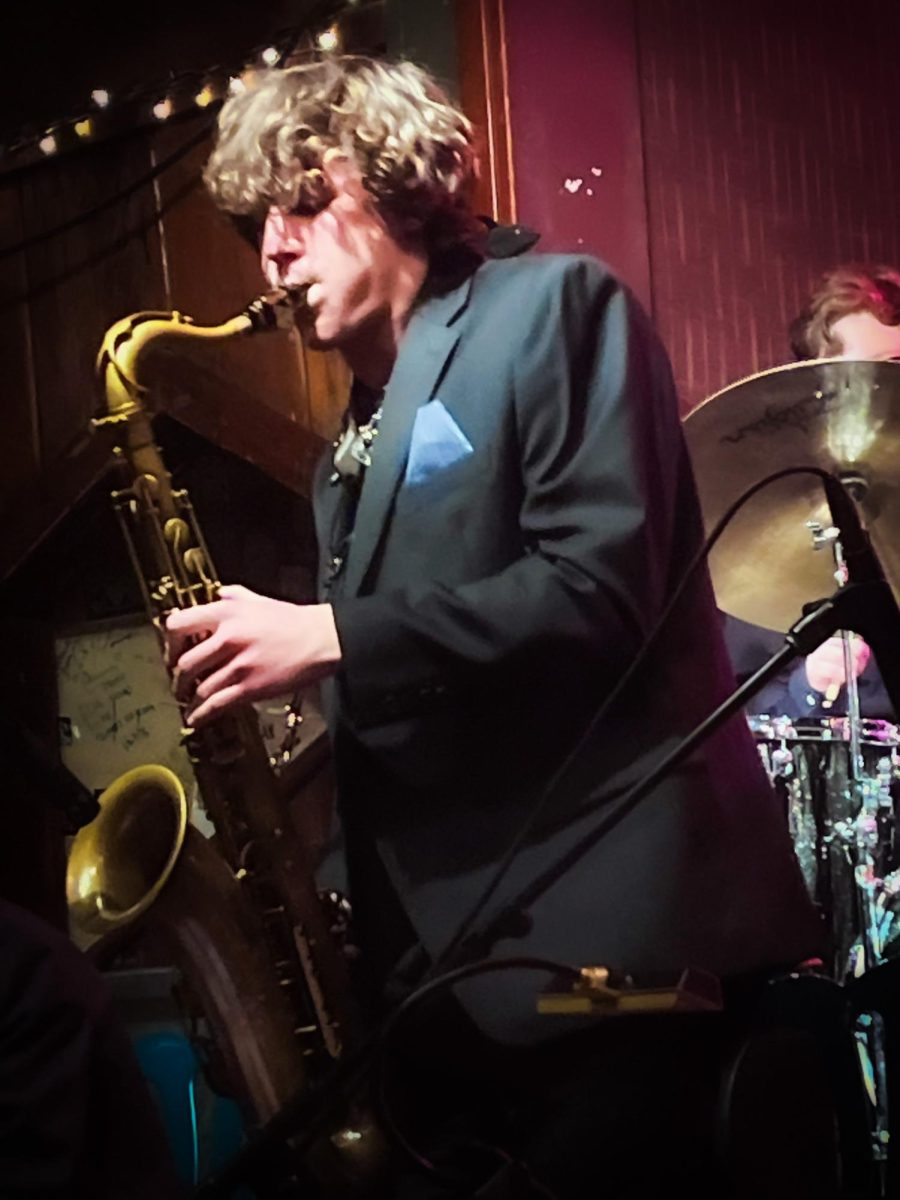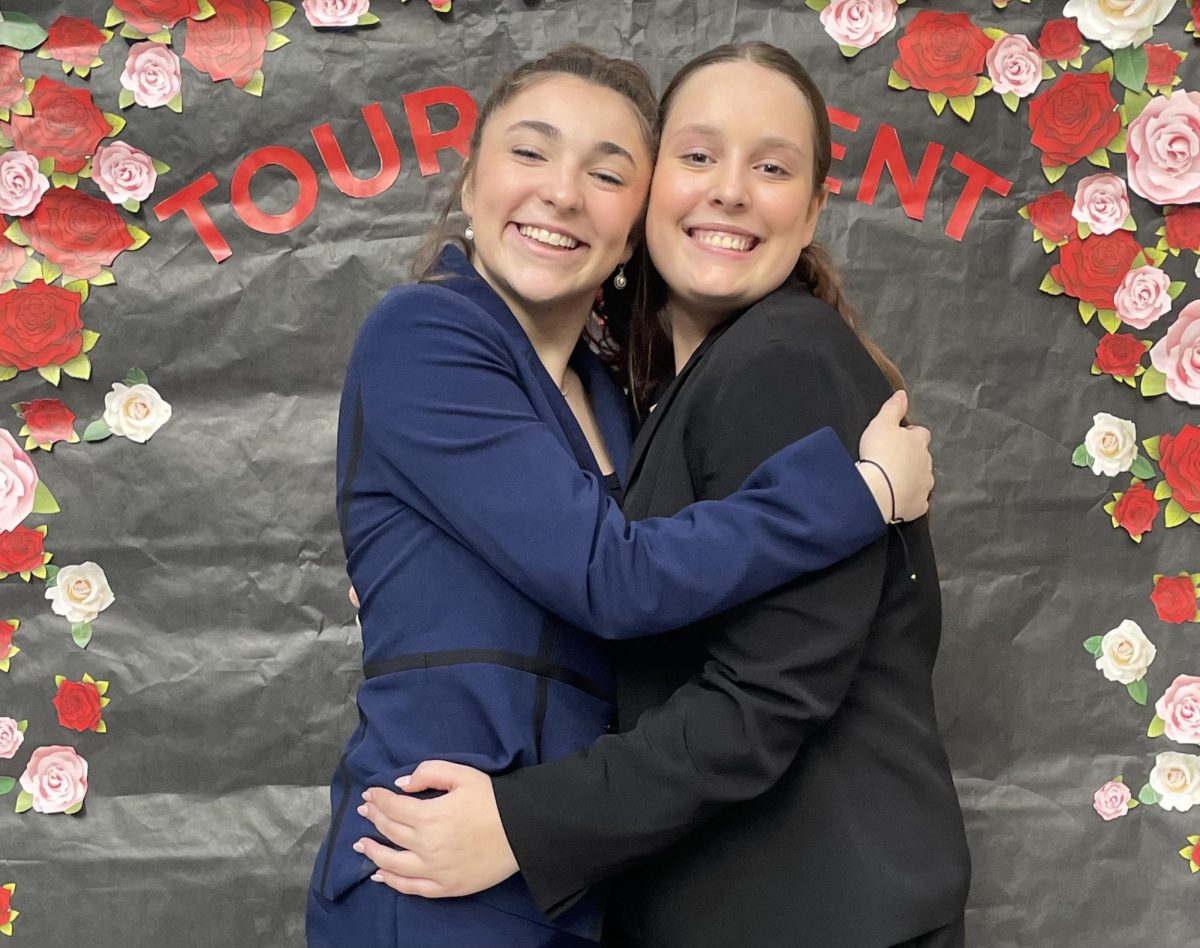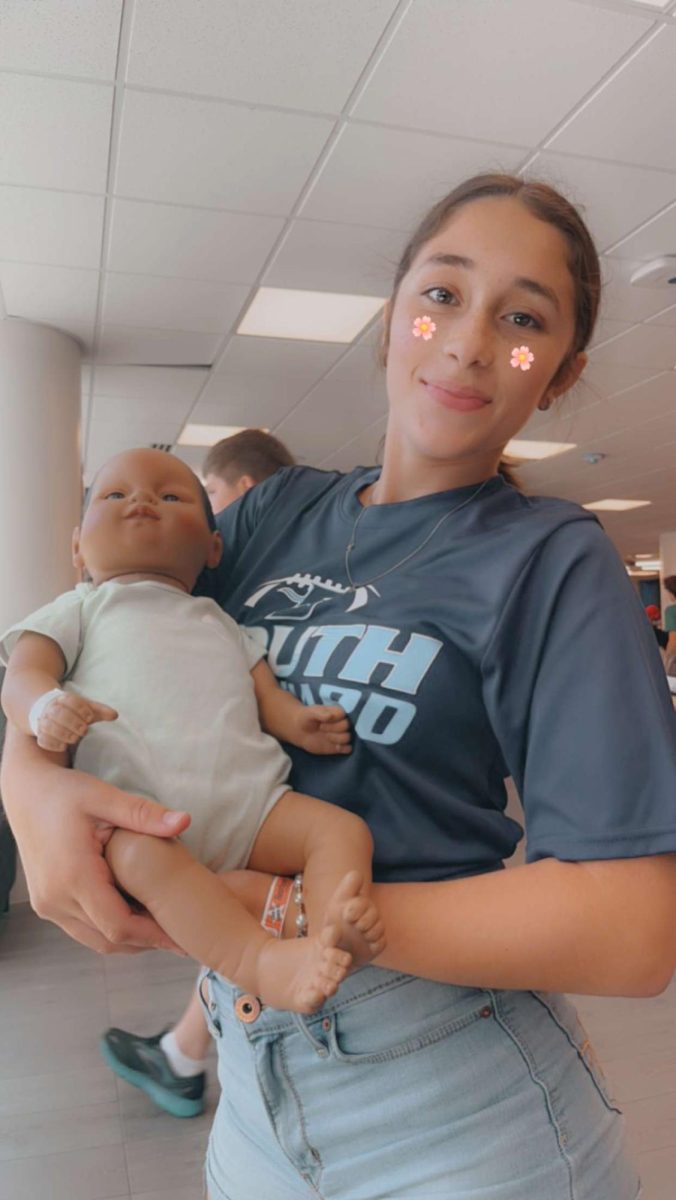Students dig for knowledge in AP Environmental Science
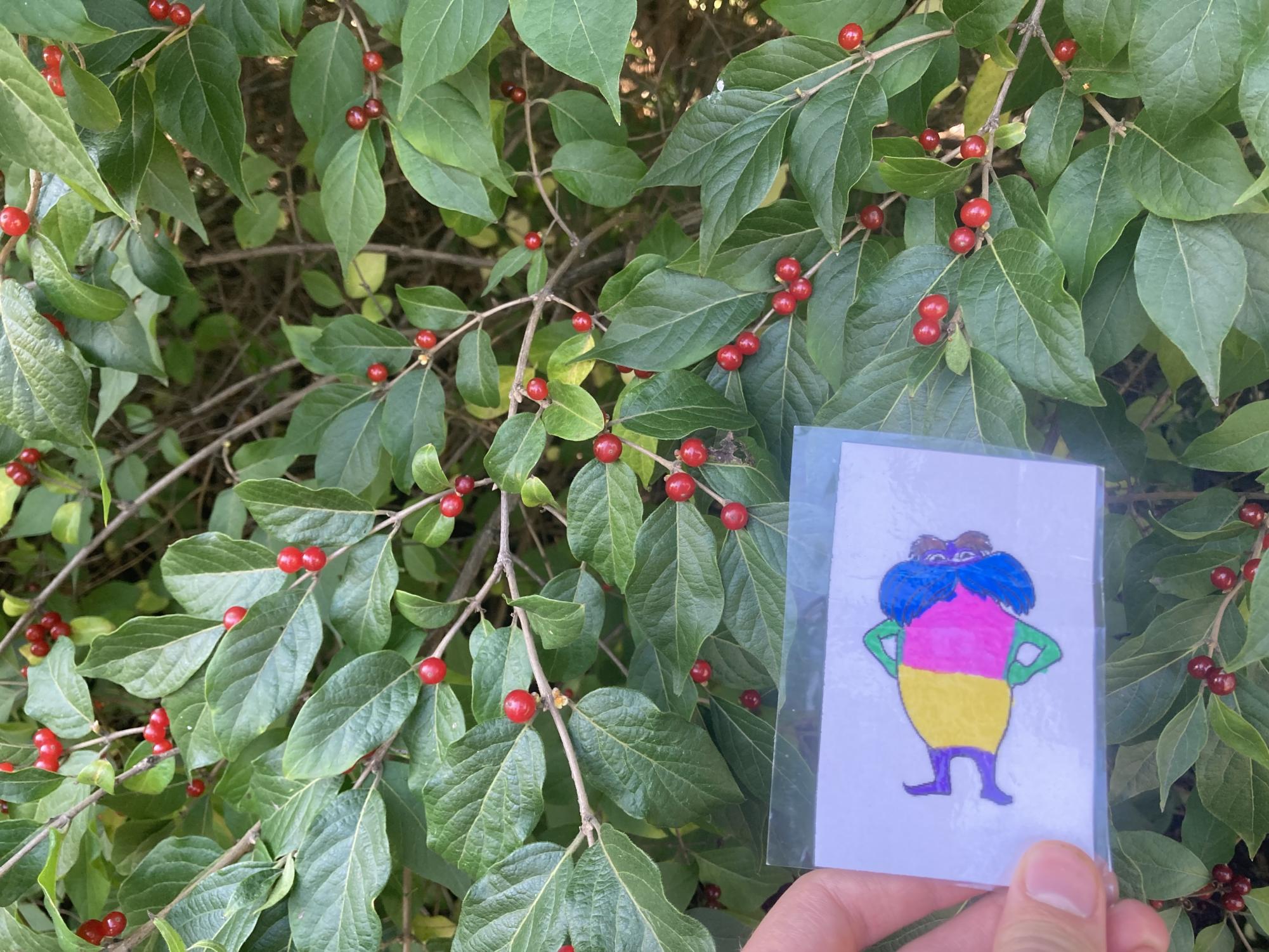
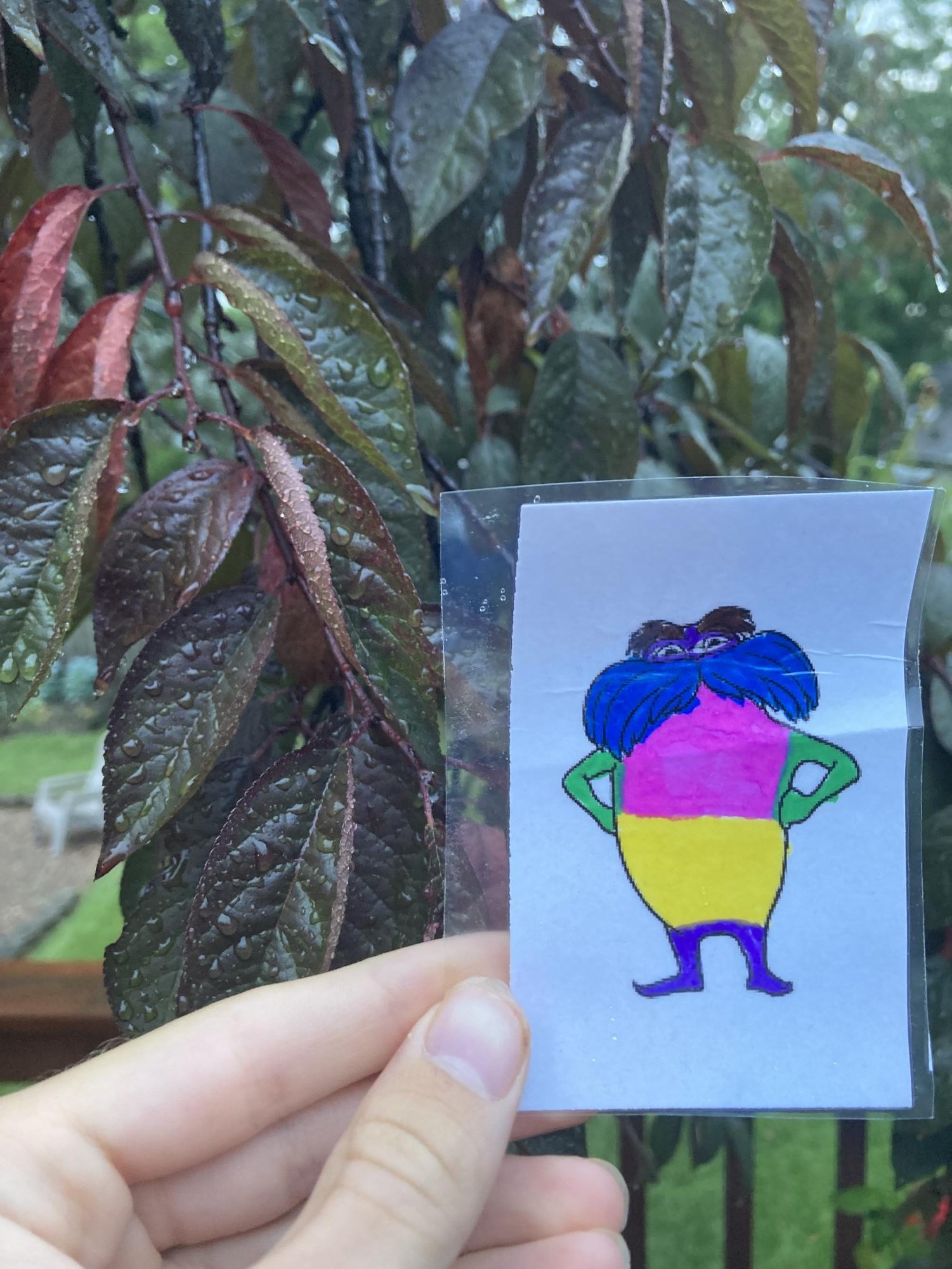
Students walk into A216 with the smell of soil in the air. Lights and pop cans are hung up in the back by string, and posters are hung all around the room explaining a wide variety of environmental related concepts. Folgers coffee cans are lined up around the room with assorted string, plastic and watermelon rinds accompanying it to finish the ensemble.
Today, students will create their own landfill.
Only in AP Environmental Science can students go on a field trip to a wastewater treatment plant or run their very own mini ecosystem with a live betta. One test even involves feeling soil and using a special technique to decipher what type it is.
It’s only fitting for a unique class such as APES to have a teacher with a non-traditional background. Mrs. Troyer explained how she came to DGS and how the class started with her arrival.
“I actually went to school to be an engineer and scientist, so I went and got my bachelor’s and master’s in that. And then I worked in consulting for about eight years at a firm; I did cleanup [with] soil and groundwater and I loved it. But I traveled a lot, and the more I was out there, I realized my favorite part of being an undergrad was when I was a ta, so I transitioned went back and got another degree, and then I was hired by the district to create the AP Environmental Science curriculum,” Troyer said.
The class often involves more hands-on activities than a traditional science class.
“So I think that my perspective is a little bit different than maybe like a traditional teacher in that I really value hands-on activities. So some of the experiments we’ve done, like the ecocolumn, [and] the chemical testing from when I was in engineering. That’s how we would actually measure some of the parameters; obviously that was at a bigger scale and a little bit more precise than what you guys are doing,” Mrs. Troyer said.
Ms. Tomonavich also teaches some sections of the class and echoed the sentiments about the hands-on nature of the labs and activities.
“I think AP Environmental Science is unique because of all the really applicable real world application topics. The labs that we get to do are applicable to everyday life and topics that students would likely be interested in or have involvement with to some extent outside of our classroom or even in post secondary education,” Tomonavich said.
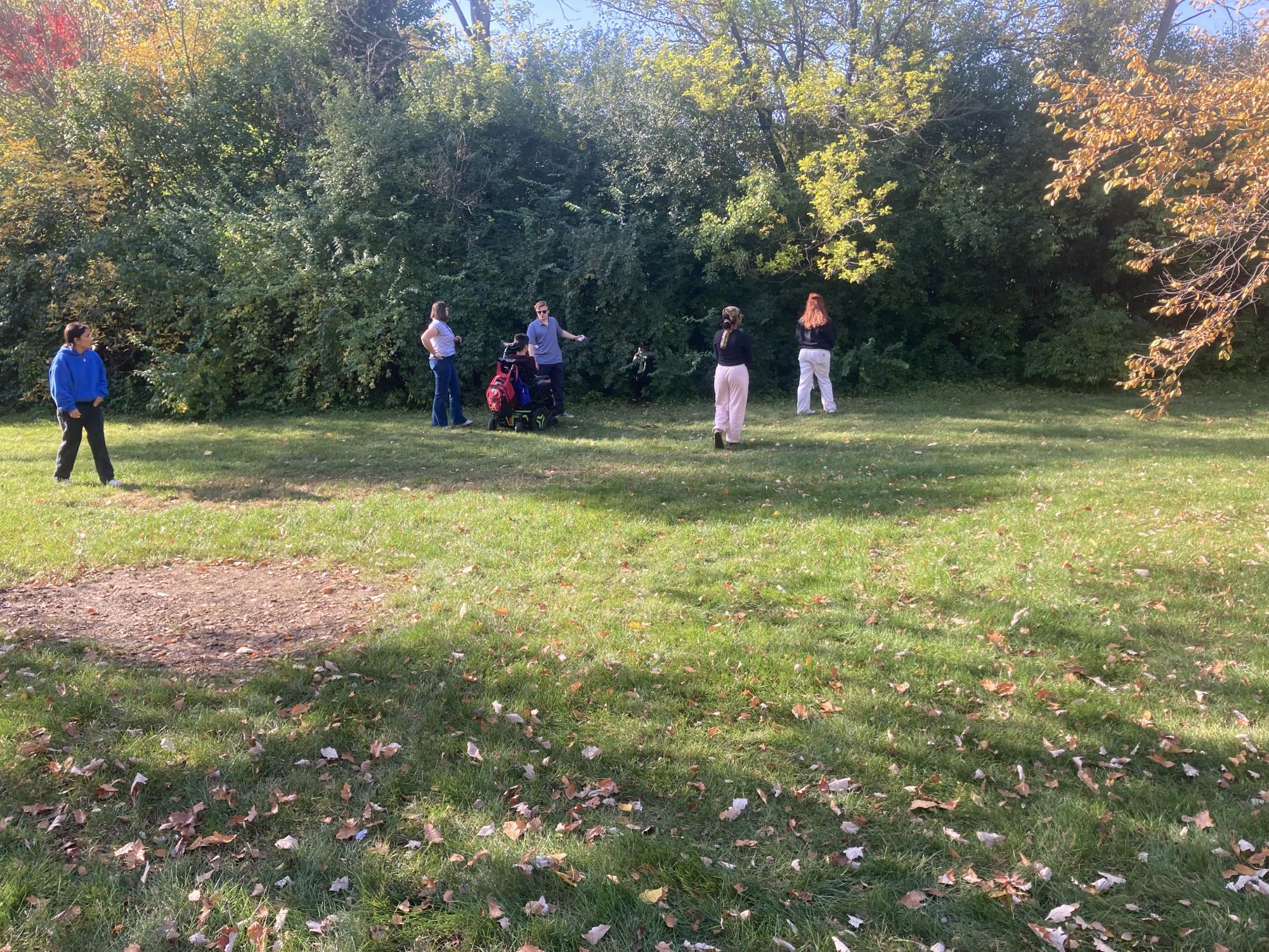
The lab centric nature of the class received praise from senior Sara Ryan, who took APES in her sophomore year.
“I liked how hands-on the class was. I felt like it had a good bridge between content and also, like, actually being able to visualize what was going on with the labs provided. Ms. Troyer did a really great job teaching and making it interesting, to the point where stuff that I was never interested in before, such as catalytic converters, actually became intriguing,” Ryan said.
APES often uses everyday materials to represent environmental concepts.
“We used Twix bars to demonstrate the terrestrial plate movements; I believe that was pretty fun. As far as most memorable, I think our compost bins. In my year we kept those above the sink on one of the high cabinets right near where I sat, and the stench was pretty insane,” Ryan said.
Current AP Environmental students faced similar labs this year, including the ecocolumn. The project allows students to take care of a live ecosystem, and run tests on the chemical properties of the ecocolumn. The results of these tests guide their decisions regarding the ecocolumn, and provide important information about the health of the betta in particular.
This year, Mrs. Troyer was forced to stay home for most of January due to recovering from surgery, and as a result students didn’t receive their betta until later in the process.
“It was really stressful at times, especially since at the beginning we didn’t have the entire ecocolumn complete because we didn’t have the fish. It was trying to balance something that wasn’t balanceable because we were missing an essential part of the ecocolumn,” senior Claire Rhoads said.
Despite this APES proved to be an overall positive experience for those involved.
“I personally enjoyed the [bycatch] lab where we had to make a [device] to sort out the different sized beans and ping pong balls. It was really hard and our group did really terrible, but it was fun to come up with an idea for it rather than just follow a set of instructions,” senior Audrey Curulewski said.
One thing that is consistently highlighted in the class is soil. It plays a key role in a wide variety of units from basic earth systems to agriculture and many labs incorporate soil to demonstrate the lesson at hand.
Students had the ability to earn credit for the last test of the year, in which they do review activities to earn points, by watching the documentary Common Ground. It focused on soil health and how regenerative agriculture supports farms better than industrial agriculture.
Just like Earth, APES is built on a foundation of soil.
“Personally, I really enjoyed touching the soil. I think it [made] me happier,” Rhoads said.
Downers Grove South High School
1436 Norfolk St.
Downers Grove, IL 60516




